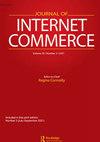信任有性别偏见吗?电子商务中信任的文献计量研究
IF 4.1
Q2 BUSINESS
引用次数: 16
摘要
摘要目的本文的目的是从性别角度批判性地回顾关于电子商务中信任的研究。方法本文以系统文献综述(SLR)为基础,运用文献计量技术。SLR减少了选择偏差,有助于得出更准确的科学结论。我们使用VOSviewer和R统计软件程序中的bibliometrix包检查了Scopus数据库中已发表的148项研究。我们在文献中以理论和方法论的形式总结了先前的发现。调查结果显示,从性别角度来看,对电子商务的信任没有得到充分挖掘。未充分开发的具体领域包括性别差异、信息系统、消费者信任以及社交网站上的消费模式等。此外,在信任、电子商务和性别方面,跨国差异的理论和模型还有相当大的发展空间。原创性先前的文献没有确定研究的方法和结构。这项研究首次产生了有助于未来研究的科学见解。本文章由计算机程序翻译,如有差异,请以英文原文为准。
Is Trust Gender Biased? A Bibliometric Review of Trust in E-Commerce
Abstract Purpose The goal of this paper is to critically review studies on trust in e-commerce from the gender perspective. Methodology This paper is based on a systematic literature review (SLR) and applies the bibliometric technique. SLR reduces selection bias, which helps to produce more accurate scientific conclusions. We examine 148 published studies in the Scopus database using VOSviewer and the bibliometrix package in the R statistical software program. We summarize previous findings in the form of theories and methodologies in the literature. Findings The findings show that trust in e-commerce from the gender perspective is underexplored. Specific underexplored areas include gender differences, information systems, and consumer trust and consumption patterns on social-networking sites, among others. Also, there is considerable scope for developing theories and models of cross-country variations in trust, e-commerce, and gender. Originality The previous literature did not identify the methods and the structural research constructs. This study for the first time develops generates scientific insights that will contribute to future research.
求助全文
通过发布文献求助,成功后即可免费获取论文全文。
去求助
来源期刊

Journal of Internet Commerce
BUSINESS-
CiteScore
10.50
自引率
7.00%
发文量
18
期刊介绍:
The business world has undergone many changes because of information technology, and the impact of the Internet may cause one of the biggest yet. While many people use the Internet for educational and entertainment purposes, organizations and companies are looking for ways to tie their internal networks to this global network to conduct electronic commerce. While companies have been conducting business electronically with suppliers and customers for many years, conducting online commerce via the Internet offers even greater opportunities for multinational, national, and even small businesses to cut costs, improve efficiency, and reach a global market.
 求助内容:
求助内容: 应助结果提醒方式:
应助结果提醒方式:


